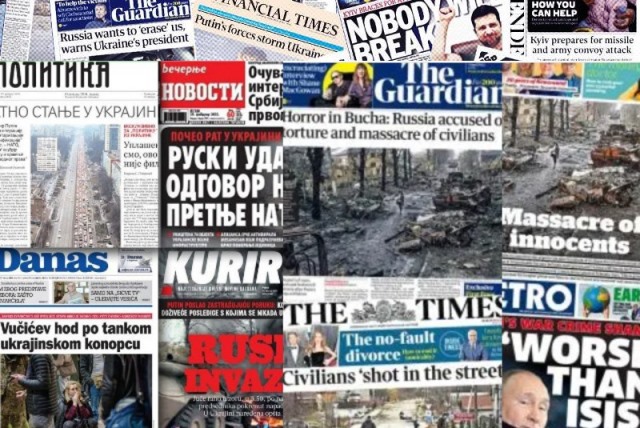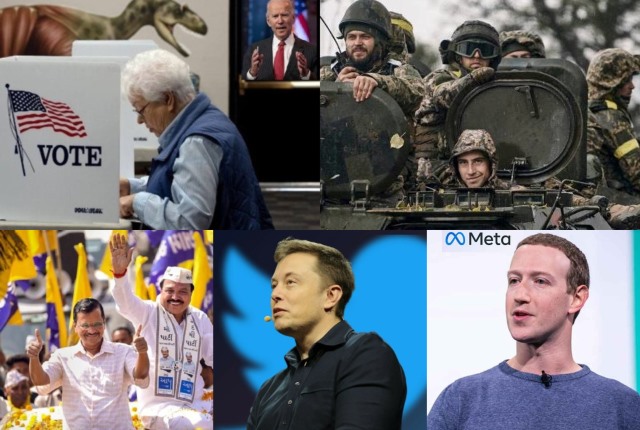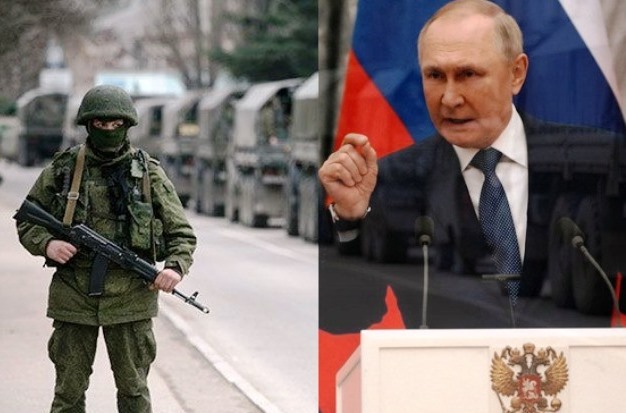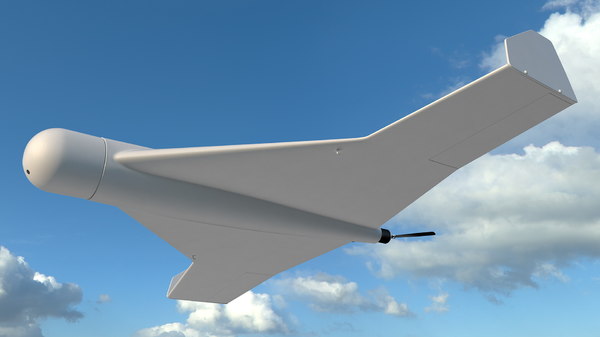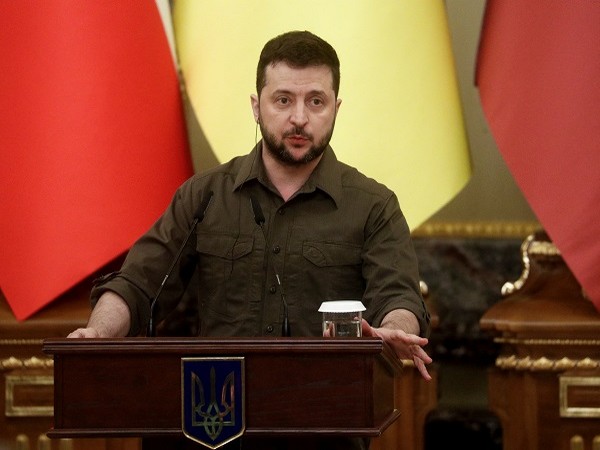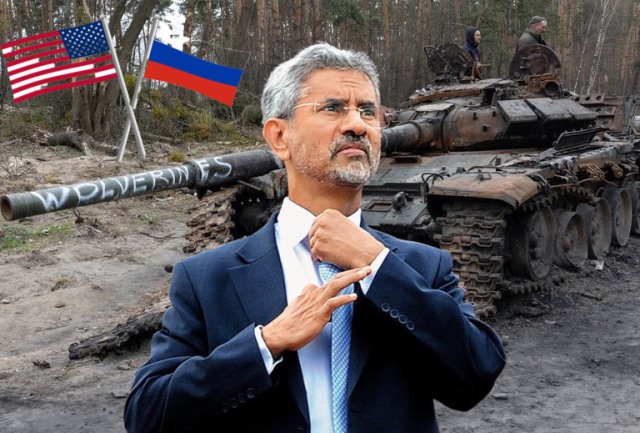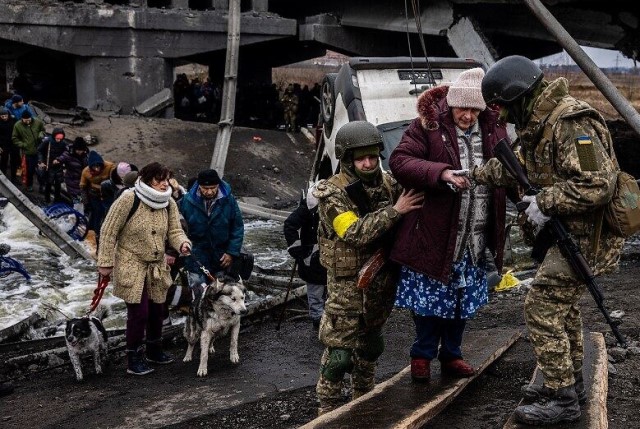News media like to put out that they are objective, balanced, unbiased and free from interference. This is particularly claimed by liberal left leaning press in the West and some State-owned media groups on both sides. But some critical evaluation of their articles and editorials exposes them to be as unabashedly propagandist as the most unapologetic biased news media. They just do it subtly as evident in the coverage of the Ukraine conflict. Through the fog of misinformation, disinformation and censorship, it is difficult to know which side to believe and which media to trust.
Within a week of the attack by Russia, the general theme in almost every western media was that Russia’s attempts to conquer Ukraine had failed and the war is proving to be longer than expected! This line was promoted in countries that unsuccessfully spent a good 20 years to ‘conquer’ Afghanistan, Iraq and Syria. How a week in war translates into ‘failure’ and 20 years as ‘near success’ is a logic that only the media can twist as fact.
Ukraine was part of the USSR and if anyone knew the number of weapons and fighting skills of Ukrainians, especially after three years of engagement in Donbas, it was the Russians. They seemed prepared for a longer war, possibly a year, given the number of troops they had assigned and the supply lines created as well as preparations for sanctions. But a lot more has been censored and disinformation is ripe on both sides.
Before the attack, some of the liberal Press in the West had also carried article and newsbriefs of Nazi type units, called Azos including in respected sites such as Bllingcat, who allegedly had infiltrated and taken over a lot of institutions in Ukraine. Since the conflict, there is almost no mention of Azos or Nazi-type groups dominating the decision making bodies in Ukraine and in fact media like BBC have been accused of whitewashing Ukrainian Azov contradicting their own previous reports.
Equally interesting is that there is very little journalist reports of Ukrainian men paying human traffickers to get out of Ukraine to escape being forced to join the defence. On the other hand, narratives of Russian men escaping Russia to dodge conscription make headlines in most western Press even when Russia lets them leave. Most Press gives the impression that the recruits in Russian Army have been forced to fight against their will while the average able bodied Ukrainian young man has rushed to the defence of motherland or fatherland. But some rare media has covered stories of Ukrainian men being forced at gunpoint to fight against their will. Why is the male human trafficking trade in Ukraine doing so well, if young men are queuing up to fight?
Take another bit of reporting. Every week, the media has reported deaths of Russian Generals, commanders etc. But no Ukrainian officer seems to have died in this 10-month old war. Amazing. It appears Ukrainian officers are invincible or simply sending the young men to slaughter while themselves staying safe in command centres in Kyiv.
Or another fact that is standing out as a sore thumb. Without evidence western commentators are pushing the line that Russia wants to revive the USSR and we are led to believe that Russia has lost this war. At the beginning, Russia spelt out its aims. It was going to ‘free’ Donbas’ and reduce Ukraine’s military capability. It has taken Donbas. It has now almost wiped out Ukraine’s arsenal. Ukraine is now dependent on weapons from the West. How long will the west ‘donate’ its own supplies?
Facts and fictions are not amiss on the other side either. Russia has been stating that this was a ‘special operation’ and not a war. Some of its media say that at end of every article. With thousands of their own soldiers dead and significant part of the enemy territory taken with daily casualties running into thousands, it is difficult to understand when a war is and when a special operation is. A Special Operation normally lasts a few weeks, is swift with very few casualties. To call this ‘special operation’ after 10 months of fighting and hundreds of thousands dead, is fictional absurdity if not denial.
Russia has claimed that it has broken the will of Ukrainians. Has it? Russian media also latches onto stories of men escaping conscription in Ukraine, suggesting Ukrainian are fighting unwillingly. Ten months later, it continues to be challenged on all fronts. Weapons alone do not win wars, unless armies are willing to fight. Ukrainians have shown true grit in the face of a formidable army. Russia is now using some brutal and indiscriminate tactics.
Russian news media also trots daily victories with few exceptions where it says that its forces have performed a tactical withdrawal. Given the number of claimed victories, Russia should have taken all of Ukraine by now. In fact, tactical retreats mean Russians have been forced out or lost in those towns. Russians who question the ‘victories’ end up silenced or in prisons. The truth is as the Government wants it, not what it is. Allegedly quite a few high-profile Russians also seem to be falling from windows especially when they have been critical of Government policy in Ukraine.
Russia goes on about de-Nazification of Ukraine. There is no evidence that the majority of Ukrainians are racists or ‘Nazi’ like. Moreover, there are plenty of extreme Right wing nationalist groups in Russia who have links with similar groups in the West.
Through the mirrors of fiction being promoted facts can be obscure but quite simple. Russia had reached an understanding with major western powers after collapse of USSR that NATO would not expand into ex-USSR countries. NATO did expand and had come close on the doors of Russia by encouraging Ukraine to join. Professor Mearsheimer’s talk is the most concise analysis of this conflict. There were also agreements about installing missiles in Ukraine. The Ukraine Army was being trained to act as a first shield against Russia. To protect itself, Russia had started insurgency in Donbas. It took Crimea in 2014 to stop its base being taken away in the Black Sea.
To convince its own side about the necessity of invasion, Russia raised the fighting in Ukraine Donbass region as ethnic cleansing of Russian speaking Slavs. It was a narrative that fired Russians. Russia also raised spectre of chemical weapons factories in Ukraine near its borders. The attack was legitimised in the eyes of ordinary Russians.
Russia prepared for a longer war with strategies to deal with sanctions and weaponization of financial institutions against it. Russia weaponised gas and oil in retaliation. Its economy has in fact grown.
ALSO READ: Ukraine War – A Diplomatic Opportunity For India
On the other side, the war is actually a proxy war for USA and the UK in an attempt to weaken Russia. The Ukrainians are victims who have been forced into a fight in support of American foreign policy. The US has a number of experts and senior army officers in Ukraine. There were chemical and bio labs even admitted by a US assistant Secretary of State as well as cautioned by WHO. It makes no sense for the US to have sent senior secret service personnel to shut down what it calls ordinary labs testing for chlamydia and strep bacteria.
Both sides are pushing propaganda narratives. The West continues to promote the narrative that Russia is losing the conflict as it failed to take Ukraine in the first week. It also promotes the narrative that Putin and his circle want to restore the USSR. Western media hardly ever mentions the agreement not to expand NATO. But some pragmatists such as Kissinger are calling for negotiations.
Russia on the other hand continues to promote the story that Ukraine has been taken over by Nazis and is an existential threat to Russia as well as trying to annihilate Russian-speaking Ukrainians.
Through all this maze of fiction on both sides when even reputable media have compromised, the only reliable analysis is to look at what has been achieved and look at social media from both sides. But freedom loving west has blocked many of Russian media as has Russia in retaliation. Truth is the first casualty of war and is being killed on both sides.
